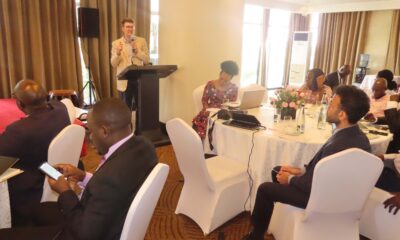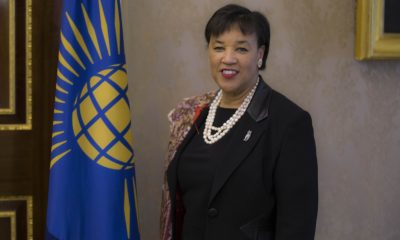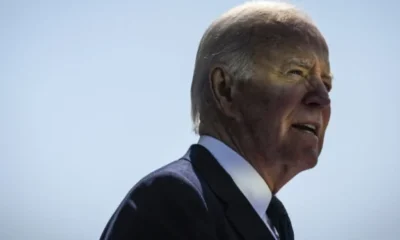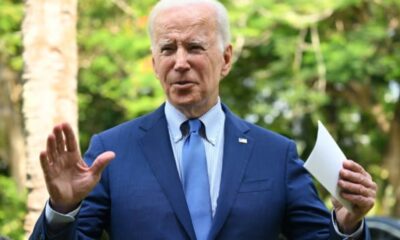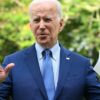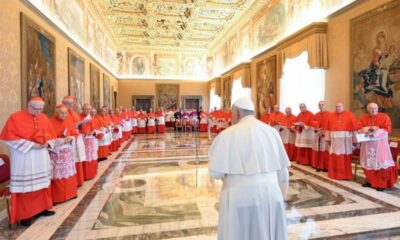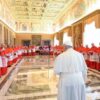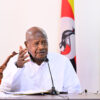International News
Uganda responds to EU Parliament Resolution on violence, harassment & crackdown on opposition politicians
Government through the Minister of Foreign Affairs, Sam Kutesa Kahamba has responded to the European Parliament resolution dated 11 February 2020 on the political situation in Uganda.
The resolution according to Hon. Kutesa, raises a number of concerns and allegations and also makes a number of recommendations that are, in many respects, ‘both surprising and of utmost concern to my government.’
The resolution condemns the violence, continued harassment and systematic crackdown faced by political opposition leaders in Uganda, as well as the suppression of civil society. All those arrested and detained for participating in peaceful political assemblies or for exercising their right to freedom of expression and association must be released immediately and unconditionally and have their charges dropped, says the text.
However, Minister Kutesa says only two presidential candidates; Patrick Amuriat Oboi of the FDC and his NUP counterpart Robert Kyagulanyi were arrested during campaigns for ignoring the COVID-19 guidelines and SOPs that he says applied to all candidates.
He says that to ensure that the country responded adequately and mitigated the impact of the pandemic, the Government, through the Ministry of Health, developed guidelines and standard operating procedures (SOPs) to align and standardize its response to prevent and curb the spread of the pandemic.
“These SOPs applied to all the people in the country irrespective of one’s gender, status, pursuits, etc. Despite the regrettable fatalities, we are proud of our record in preventing deaths and limiting the spread of the pandemic. We believe that the primary duty of the government is to its citizens. The one thing, therefore, that we have not compromised, and cannot compromise about, more so in the midst of the pandemic is the security and well-being of the people” Kutesa says in his response.
He further noted that the Ugandan government has since the outbreak of the pandemic taken strict measures to ensure that everyone complies and respects the law no matter who they are.
In order to comply with the election road map, the Electoral Commission, following guidance from the Ministry of Health developed SOPs on the conduct of the elections, which were adopted following consultations with all presidential candidates and/or their representatives, to ensure the conduct of a credible election amidst the pandemic.
“The SOPs and guidelines applied to ALL candidates. The candidates were urged to comply with them and were frequently reminded to do so. However, the choice and political stratagem of some of the Presidential candidates, particularly those of interest Hon. Robert Kyagulanyi and Mr. Patrick Oboi Amuriat – was from the very first day of presidential nominations on 2nd and 3rd November 2020, to defy the measures in place. Those two candidates repeatedly told their supporters that COVID-19 was a hoax, incited them and wilfully breach the SOPs, organizing mass rallies, thereby putting the lives of everyone, not just themselves and their supporters, at risk in the midst of the pandemic” he says.
Adding that as a result of his open defiance to the SOPs, Hon. Robert Kyagulanyi was arrested by the police on 18th November 2020 and his arrest was followed by extremely violent riots by his supporters characterized by the mounting of illegal roadblocks, assaulting innocent people and robbing them, and assaulting security personnel. This took place in the capital city of Kampala and a few other parts of the country.
The minister adds that the November riots were not spontaneous but pre-planned, supposedly to “test the system”.
He argued that it became clear that some of the political leaders had planned to frustrate the election and even financed the prior purchase and storage of the weapons used by the rioters such as old car tyres, rocks, hammers, firebombs, etc.
“Faced with rioters armed with the above dangerous weapons, and intent on threatening to cause grievous harm to the public and security personnel, law enforcement agencies acted, to protect the public against violence, crime and other harmful acts, as required of them by the law. You and your esteemed colleagues will, no doubt, agree with me that no country would tolerate or do nothing about such a state of criminal behavior. This, therefore, resulted in the arrest of a number of suspects. Some were charged in courts of law and released on bail, while others were remanded in prison” he says.
Hon. Kutesa further explains that from the beginning of the campaigns, Hon. Robert Kyagulanyi and Mr. Partrick Oboi Amuriat promised a ‘Plan B’, which according to them, was (and remains)
a plan to commit violent acts, organize an insurrection, and “make Uganda ungovernable” and that during the campaigns, they repeatedly stoked fear and incited violence, which was a clear and present danger to the security and stability of the country and its citizens.
“We do not believe that any country that upholds democratic values would tolerate such a plan. Uganda certainly would not, because of its commitment to democracy and the rule of law. It is against this background that the Government deployed the security forces
in Kampala and the rest of the country. This was done to reassure the public that there would be an election and order during the elections. It was also a clear and necessary message to those that intended (and had plans) to disrupt peace to change course. The outcome of this deployment was an election whose peaceful, free and fair nature, has been acknowledged by most in the country and beyond” Kutesa told the EU.
He emphasized that the law enforcement agencies in Uganda are a product of Uganda’s history. They recognize the sanctity of life and have always upheld human rights in the execution of their constitutional duties, balancing the needs of security, with ethical concerns for the rights and wellbeing of all.







